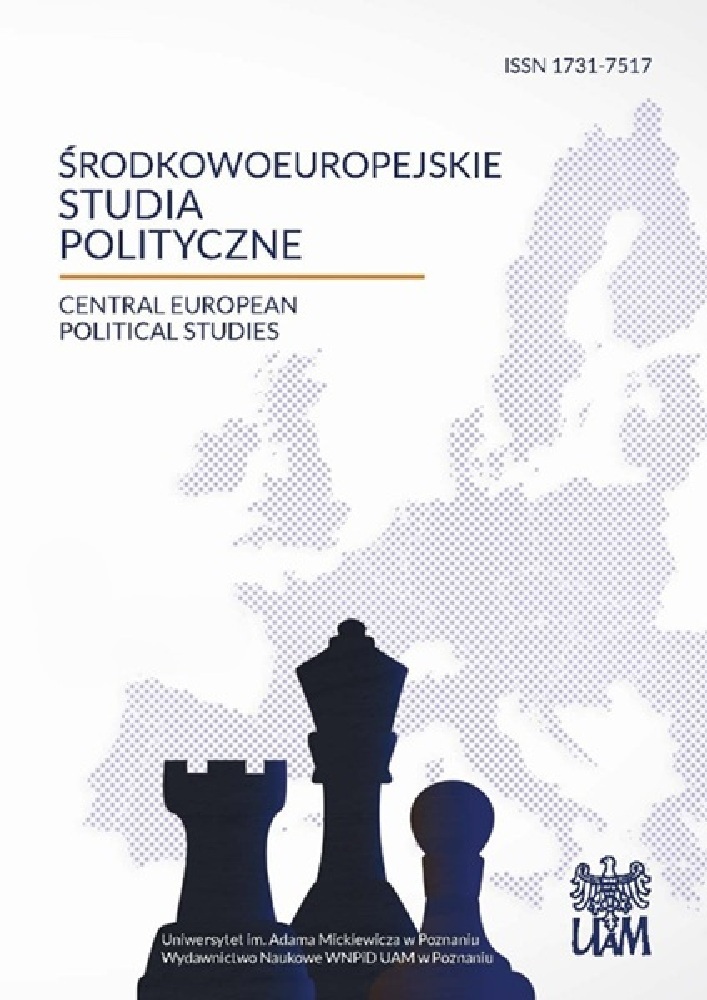Abstract
This paper refers to the issue of the forming of societies in former satellite states of totalitarian communism, which turned to the democratic model of political decision- making and exercising authority. The paper is not strictly historical, although it is based on historical materials, nor is it a commentary on current political events. I am trying to show that the implementation of the representational principle in democratic systems of these states creates a loophole in the citizens’ competence and to a certain extent makes its applicability senseless. The citizens, who have so far been equal before the law, are now (theoretically) equal before their representatives. The latter represent concrete groups of citizens who should vote for them on the basis of an electoral system (constituency). The antidote to neutralize the consequences of this apory is provided by the principle of deliberativeness as the tool leading the forming society and its representatives to sovereign political decisions.References
Bocheński J. M., Parys J. II[1992], Między Logiką a Wiarą, Les Éditions Noir sur Blanc, Montricher.
Caruso D. [2006], Private Law and State-making in the Age of Globalization, „New York University Journal of International Law and Politics”, New York University School of Law.
Dahl R. A. [1995], Demokracja i jej krytycy, z ang. przeł. S. Amsterdamski, Społeczny Instytut Wydawniczy ZNAK, Kraków.
Laden A. S. [2009], zapis seminarium w dniu 23 czerwca 2009 r. zatytułowanego „Looking forward: a democratic picture of legitimacy, authority and deliberation”, http://www.ict.kul.eu/index.html?id=20.
Osiatyński W. [2003], Paradoxes of Constitutional Borrowing, 1 Int’l J. Const. L., w: Phillips E. [2007], The War on Civil Law? The Common Law As a Proxy For the Global Ambition of Law and Economics, „Wisconsin International Law Journal”,[copyright:] The Regents of the University of Wisconsin.
Pettit Ph. [1997], Republicanism: A Theory of Freedom and Government, Oxford University Press, Oxford.
Pettit Ph. [2001], A Theory of Freedom. From Psychological to the Politics Agency, Polity Press, Cambridge.
Phillips E. [2007], The War on Civil Law? The Common Law As a Proxy For the Global Ambition of Law and Economics, „Wisconsin International Law Journal”, The Regents of the University of Wisconsin.
Strauss L. [1998], Sokratejskie pytania, z ang. prze3. P. Maciejko, Fundacja Aletheia, Warszawa.
Schmitt C. [2000], Teologia polityczna i inne pisma, z niem. przeł. M. A. Cichocki, Społeczny Instytut Wydawniczy ZNAK, Kraków.
Voegelin E. [1992], Nowa nauka polityki, z ang. przeł. P. Śpiewak, Wydawnictwo Aletheia, Warszawa.
Weber M. [2002], Gospodarka i społeczeństwo. Zarys socjologii rozumiejącej, z niem. przeł. D. Lachowska, Wydawnictwo Naukowe PWN, Warszawa.
Schopenhauer A., O myśleniu z siebie samego, z niem. przeł. G. Sowiński, w: „Logos i Ethos” 1992, nr 2, s. 137–144.
License
Copyright
© 2009, Uniwersytet im. Adama Mickiewicza w Poznaniu, Wydawnictwo Naukowe Instytutu Nauk Politycznych i Dziennikarstwa
OPEN ACCESS
